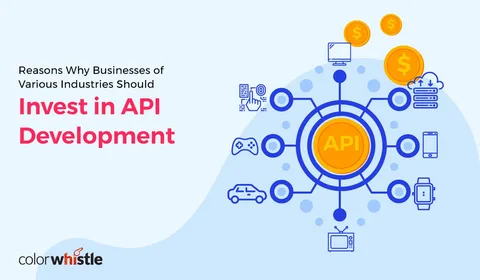APIs (Application Programming Interfaces) drive the modern web, enabling applications to communicate and exchange data seamlessly. Businesses rely on well-designed APIs to build scalable solutions, automate workflows, and integrate third-party services. But what makes API development so crucial in today’s digital landscape?
Why API Development Matters
APIs serve as the backbone of software ecosystems. They facilitate real-time data exchange, ensuring smooth interactions between applications, devices, and platforms. Developers create APIs to extend the functionality of software systems, allowing different components to work harmoniously.
Enhancing Digital Connectivity
With APIs, businesses connect various software systems, eliminating silos and improving operational efficiency. E-commerce platforms, for instance, leverage APIs to integrate payment gateways, inventory management systems, and customer support tools seamlessly.
Improving Developer Productivity
APIs simplify the development process. Instead of building everything from scratch, developers utilize APIs to access pre-existing functionalities. This approach accelerates project timelines, reduces errors, and enhances software reliability.
The Key Aspects of API Development
Successful API development involves several critical aspects. To build robust APIs, developers focus on usability, security, and performance.
Designing a User-Friendly API
An API must be easy to use and understand. Clear documentation, standardized endpoints, and consistent responses ensure that developers can integrate APIs without frustration. RESTful APIs, for example, follow uniform resource identifiers (URIs) and predictable patterns that simplify adoption.
Ensuring Security
Security remains a top priority in API development. Developers implement authentication mechanisms like OAuth and API keys to prevent unauthorized access. Additionally, encryption protocols safeguard sensitive data during transmission.
Optimizing Performance
Well-optimized APIs reduce latency and enhance user experience. Developers use caching, rate limiting, and load balancing techniques to ensure that APIs perform efficiently under heavy traffic.
The Role of API Development in Various Industries
APIs revolutionize numerous industries by streamlining operations and unlocking new opportunities.
E-commerce and Payments
Online retailers depend on APIs to connect with payment processors, manage inventories, and personalize user experiences. Secure API integrations enable frictionless transactions and real-time order tracking.
Healthcare and Telemedicine
Healthcare providers use APIs to share patient records securely, schedule appointments, and integrate telehealth services. Fast and reliable API interactions enhance patient care and operational efficiency.
Finance and Banking
Financial institutions leverage APIs for real-time transactions, fraud detection, and digital banking solutions. Open banking APIs empower customers by enabling secure access to financial data and third-party services.
The Future of API Development
The API landscape continues to evolve, driven by emerging technologies and industry trends.
AI and Machine Learning Integration
APIs enable AI-powered applications to deliver smarter recommendations, automate decision-making, and enhance predictive analytics. Businesses harness AI APIs to improve customer interactions and streamline processes.
API-First Development
Companies prioritize API-first strategies, designing APIs before building applications. This approach ensures better scalability, reusability, and flexibility in software architecture.
Enhanced API Monetization
Organizations increasingly monetize APIs by offering them as products or subscription-based services. API marketplaces provide developers with access to premium data and functionalities, fostering innovation.
Conclusion
API development plays a crucial role in modern software ecosystems. From connecting applications to enabling new business models, well-designed APIs empower developers and businesses alike. As technology advances, API development will continue to shape the digital world, offering endless possibilities for growth and efficiency.
